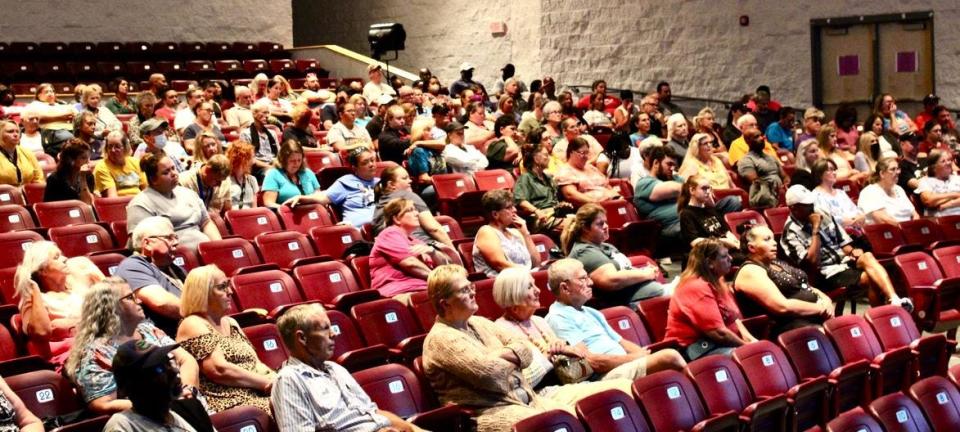CMCSS bus drivers take de-escalation training to curb violence ahead of new school year
The Clarksville-Montgomery County School System is hoping to curb violence on buses before it starts.
Around 250 school bus drivers participated in a de-escalation class last week designed to prevent altercations on CMCSS buses. The training was conducted in partnership with the Montgomery County Sheriff's Office.
"I think the major take away from this [class] is they know they have support for when something happens on the bus, that we've got teams like you guys out there that are going to help us," Elizabeth Kong, assistant transportation manager CMCSS, told the sheriff's office.
Pay, benefits, free training: CMCSS offers incentives to combat bus driver shortage

"Because, for them (bus drivers and aids) there by themselves with 60 students on the bus, when something breaks out, knowing that [law enforcement] is there for them is a going to be a big help."
Skills include verbal judo
The class included training on verbal judo, a skill using persuasion to obtain the desired outcome.
Although bus incident statistics were not tracked by CMCSS or the Montgomery County Sheriff's Office, the School Resource Officer data shows 7,051 total calls for service during the 2021-2022 school year and 678 student charges.
Anthony Johnson, the district's chief communication officer, said CMCSS provides additional student management support on school buses where safety concerns have been identified by the driver or school administration.
"If the use of a teacher/educational assistant bus monitor is unsuccessful, an administrator from the school or from the Student Transportation Department may be assigned to ride the bus to assist with student management. As a last resort, an SRO (School Resource Officer) may be assigned to ride the bus to assist with student management," Johnson said.
Learning the rules
Bus riding rules, expectations, and consequences are communicated to students and families at the beginning of each school year, Johnson said.
Substitute bus drivers receive the same training, he said, with training for student behavior management training given annually.
"Our substitute bus drivers are critical to our ability to provide transportation services, especially during the driver shortage. Having a consistent driver on every bus who has built relationships with students, teachers, and administrators and is most familiar with the routes and challenges is the goal and helps with behavior management," Johnson said.
And the district is still seeing a driver shortage as the new school year begins. In the spring, there were as many as 100 open positions. As the district heads into the 2022-2023 school year, Johnson said there are 78.
Filling the openings
But reinforcements are on the way, Johnson said, as 50 drivers are in a training program with an additional 24 applicants coming from a job fair held July 27.
"Even after those 78 openings are filled, we will continue recruiting to have a strong pool of substitute drivers," Johnson said.
In addition to training opportunities, new bus drivers can earn a starting wage of between $16.27-18.66 per hour. Veteran bus drivers can earn as much as $27.72 per hour.
Sign-on bonuses of $1,000 are offered to new drivers, along with $1,000 referral bonuses.
Drivers are offered $10 per additional route and are eligible for performance bonuses of $600. Bonuses are available to those who have been employed with CMCSS for 18 months or more.
Reach reporter Craig Shoup by email at cshoup@gannett.com and on Twitter @Craig_Shoup. To support his work, sign up for a digital subscription to TheLeafChronicle.com.
This article originally appeared on Clarksville Leaf-Chronicle: CMCSS: Bus drivers take de-escalation course ahead of new school year

